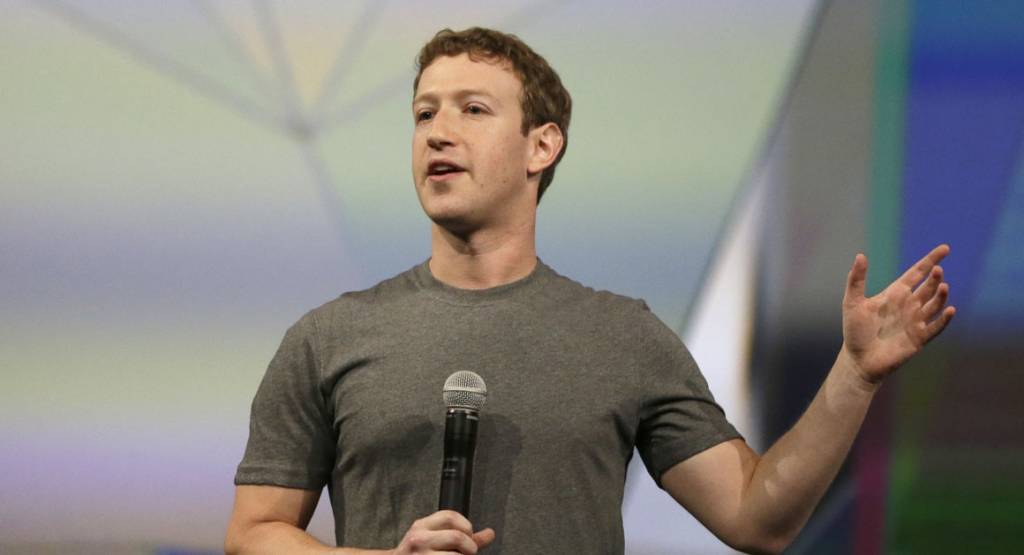Facebook founder Mark Zuckerberg is not alone in the understanding that positive connection is vital for our world today. His great ancestors knew it too. Will Zuckerberg learn from their experience?
Mark Zuckerberg’s new vision for facebook is a noble one, but new technological tricks will not be enough to achieve it. Luckily, the tools to “bring the world closer together” can be found in his very own heritage.
The amazing fact that a social network like Facebook is one of the most successful and influential inventions of our time says a lot about the social creatures that we are.
Now Mark Zuckerberg aims to make Facebook even more influential. In a new mission statement, Zuckerberg said that Facebook, will exist “to give people the power to build community, to bring the world closer together.”
Zuckerberg is not alone in the understanding that positive connection is vital for our world today. His great ancestors knew it too. For millennia Jewish sages have been writing that human connection is the only power that can elevate humanity to a peaceful, fruitful existence.
However, these sages understood that positive connection is achieved through determined practices and a clear understanding of our egoistic natures.
Will Zuckerberg learn from their experience?
Connecting People Is Not So Simple
Facebook has done a lot to connect people around the world. With its now 2 billion users, it has created a new reality where our lives touch the lives of others in an unprecedented way. Zuckerberg’s great innovative quality is helping him to now take it to the next level, having realized that it is not enough to connect people physically or even virtually, if positive, heartfelt connection is what we are after. One might say that Facebook has been a remarkable experiment, with its rampant hate speech, cyberbullying, Facebook depression, fake news and other negative phenomena, showcasing all the negative outcomes of close human interaction when it is not moderated and directed.
The reason that even the best efforts to bring people together are mostly unsuccessful in the long run, and why we are seeing such a rise in divorce rates, family problems and social divides, is that our egoism is constantly growing. Despite our growing dependence on one another, as we become more individualistic, we become more opinionated, more separated from others and more judgmental of them.
Our social bonds are also problematic because we are in a constant state of “social comparison”; a race for status, incessantly comparing ourselves to others, even subconsciously. As Alain de Botton writes in his best seller book “Status Anxiety” – there is a “universal anxiety that rarely gets mentioned directly: an anxiety about what others think of us; about whether we’re judged a success or a failure, a winner or a loser. And so in our need to always rank higher than the rest, we feel bad about ourselves when others showcase success and happiness, and feel good when they don’t. This is why so many people feel gloomy when browsing Facebook profiles, viewing the perfect lives selectively presented by their Facebook friends. Many studies have even shown that for this reason, Facebook is a predictor of depression.
In a society where the success of others is experienced as a blow to our own well being, it is no wonder that we find it difficult to achieve truly positive connections, let alone the vital cooperation that is necessary to overcome the crises our world now faces.
Timeless Wisdom
To tackle the pitfalls of our human nature, Jewish studies of the innermost teachings of Torah,have always taken place in discussion groups, aiming not at gaining knowledge, but at connecting the hearts; transforming groups of individuals who envy and even hate each other, into true friends who love the others as themselves.
In the portion Aharei Mot, the book of Zohar writes, “Behold, how good and how pleasant it is when brothers sit together. These are the friends as they sit together, at first, they seem like people at war, wishing to kill one another. Then, they return to being in brotherly love. Henceforth, you will also not part … and by your merit there will be peace in the world.”
From Facebook Depression to Social Transformation
Indeed, technology can do a lot to connect people and facilitate interaction, but to really bring people closer together, it takes insight and practices that can allow participants to turn around the egoistic mechanisms that separate us and make us miserable, into new tendencies: trust, support and mutual guarantee.
Instead of focusing on ourselves in personal profiles, exhibiting our own best features and experiences, we need to start groups where people can express that which is good and praiseworthy in others. Discussions need to be moderated so that the focus is not on what I have to say so that it shines above all other opinions, but upon what others have to say, and the understanding achieved together.
In an environment where participants practice shifting the focus from themselves to others, there is hope that we will be able to feel true warmth, support and happiness; and gradually reshape our human societies for the better. Mark Zuckerberg is pointed in the right direction, but he may have to dig deep in his roots to find the means to get to the future he envisions.
